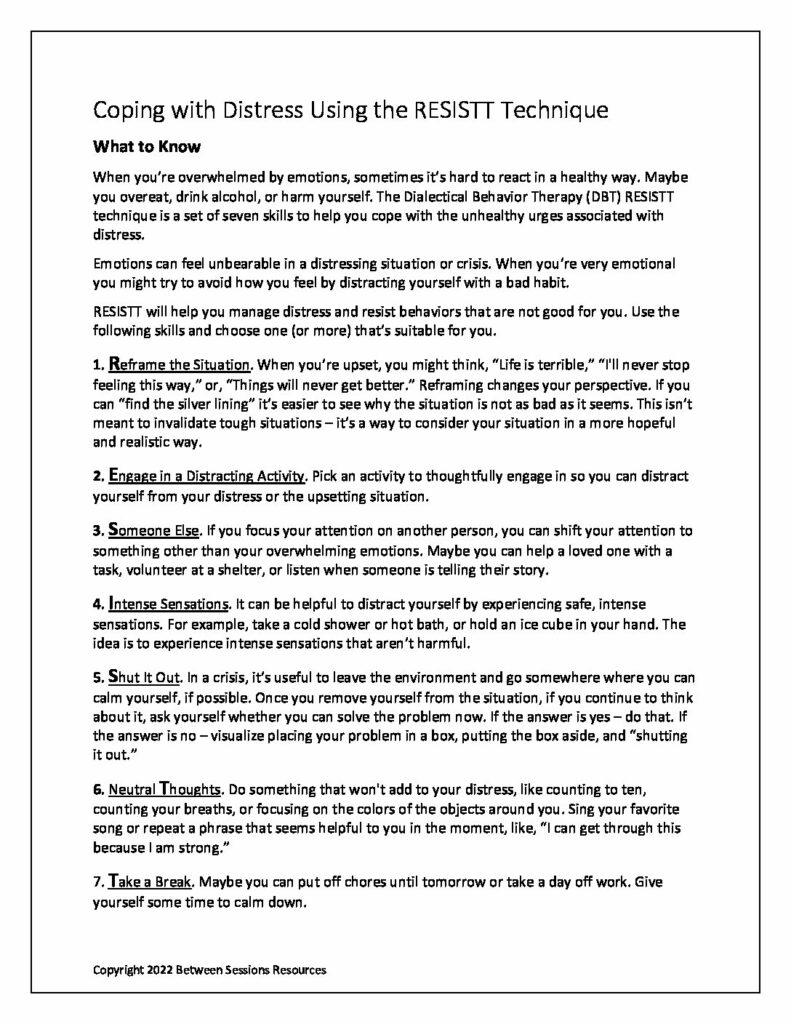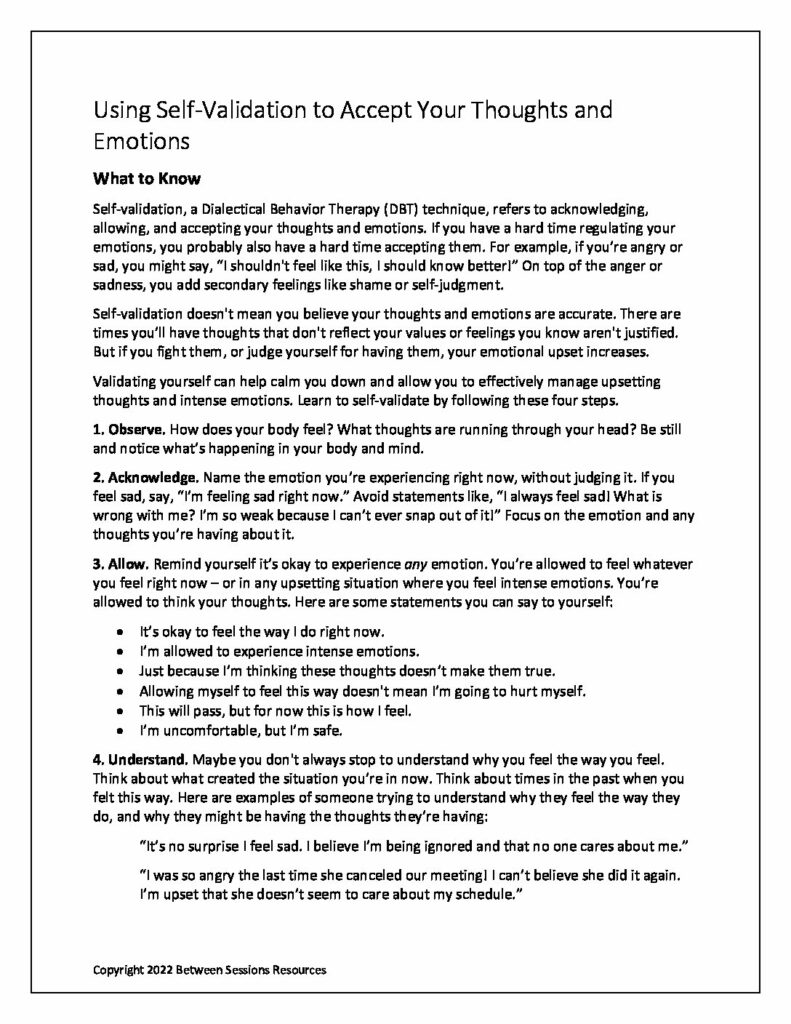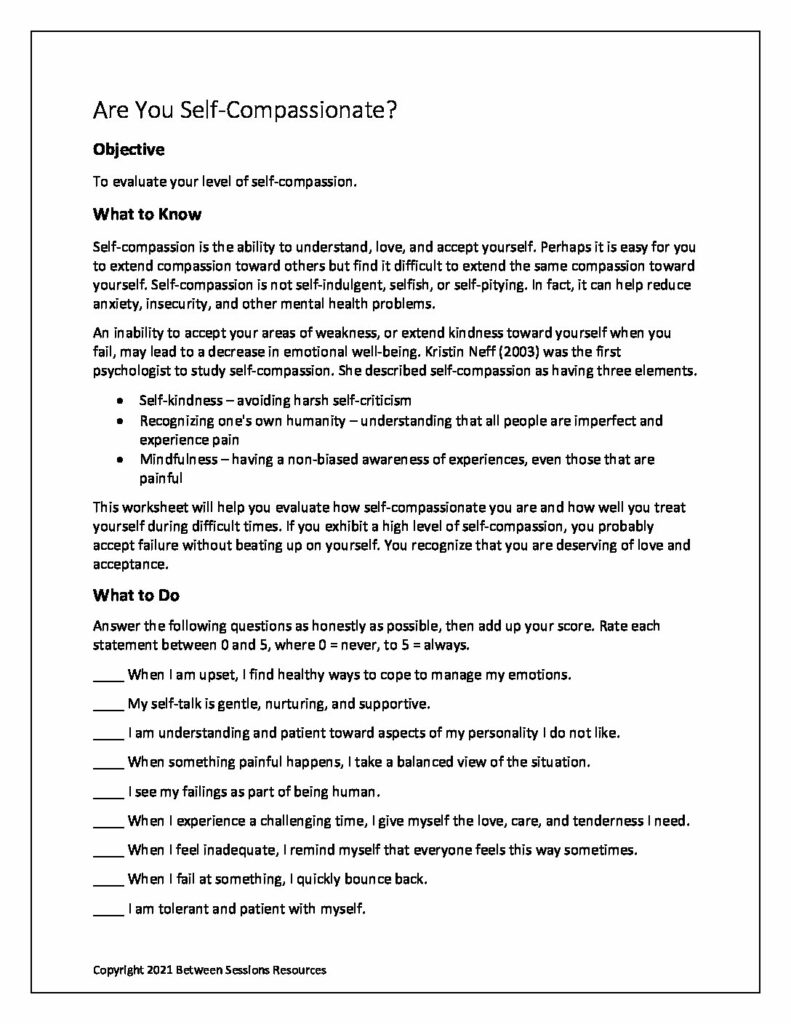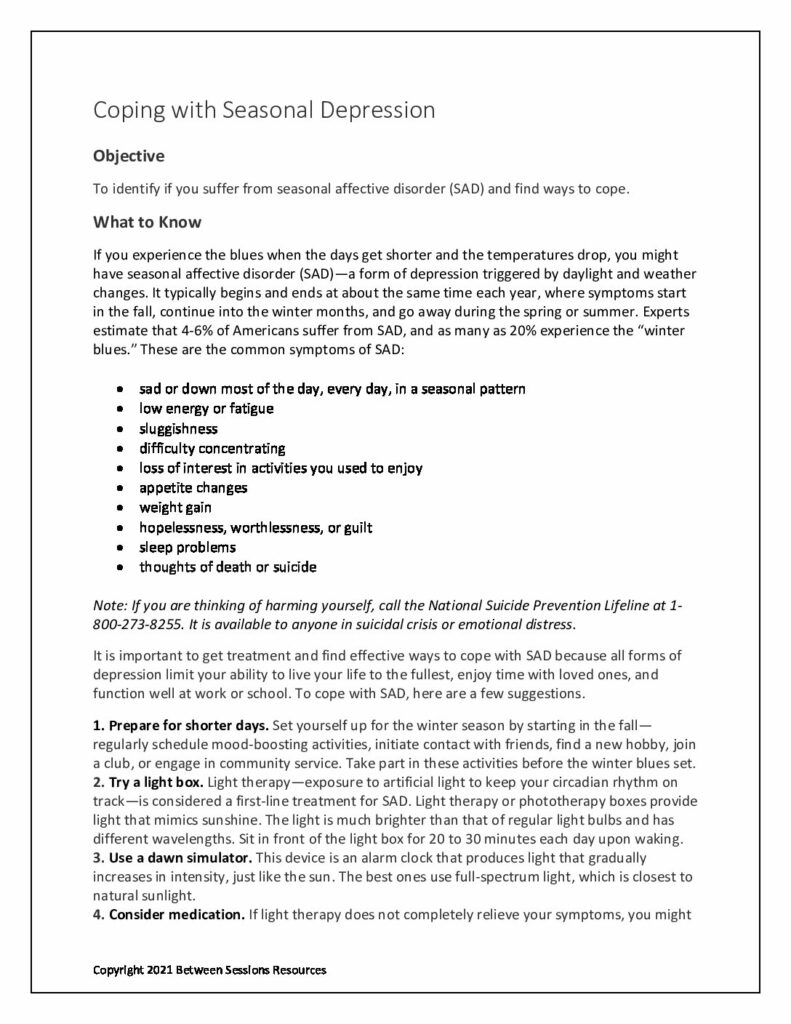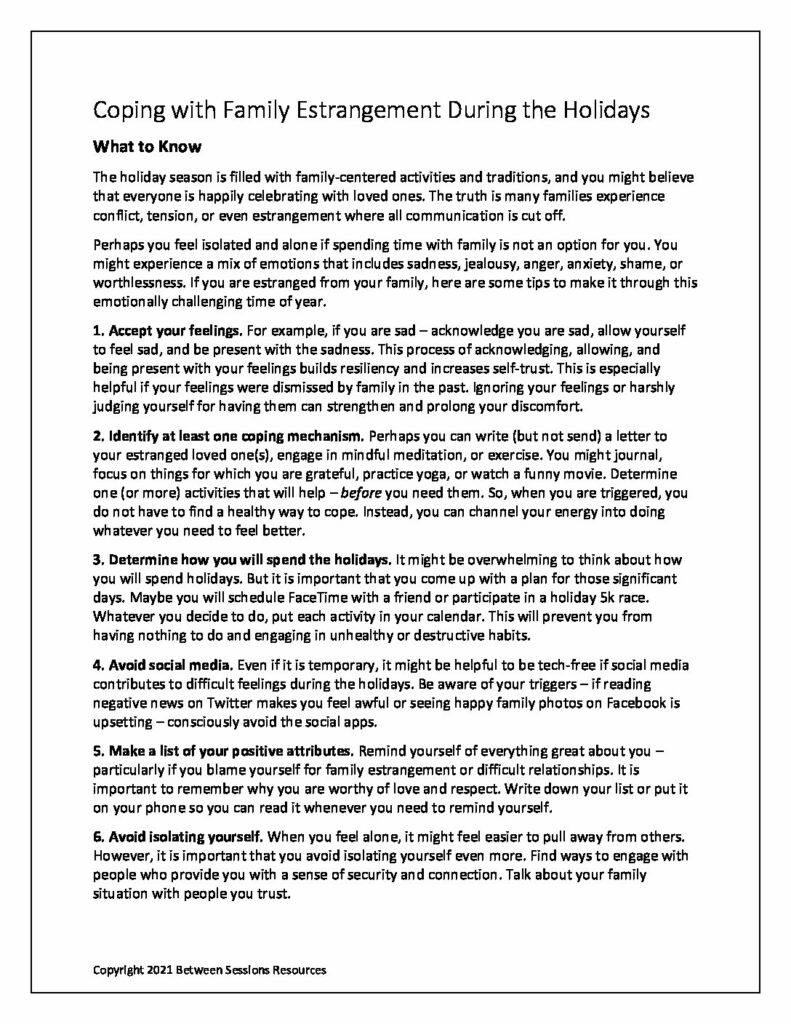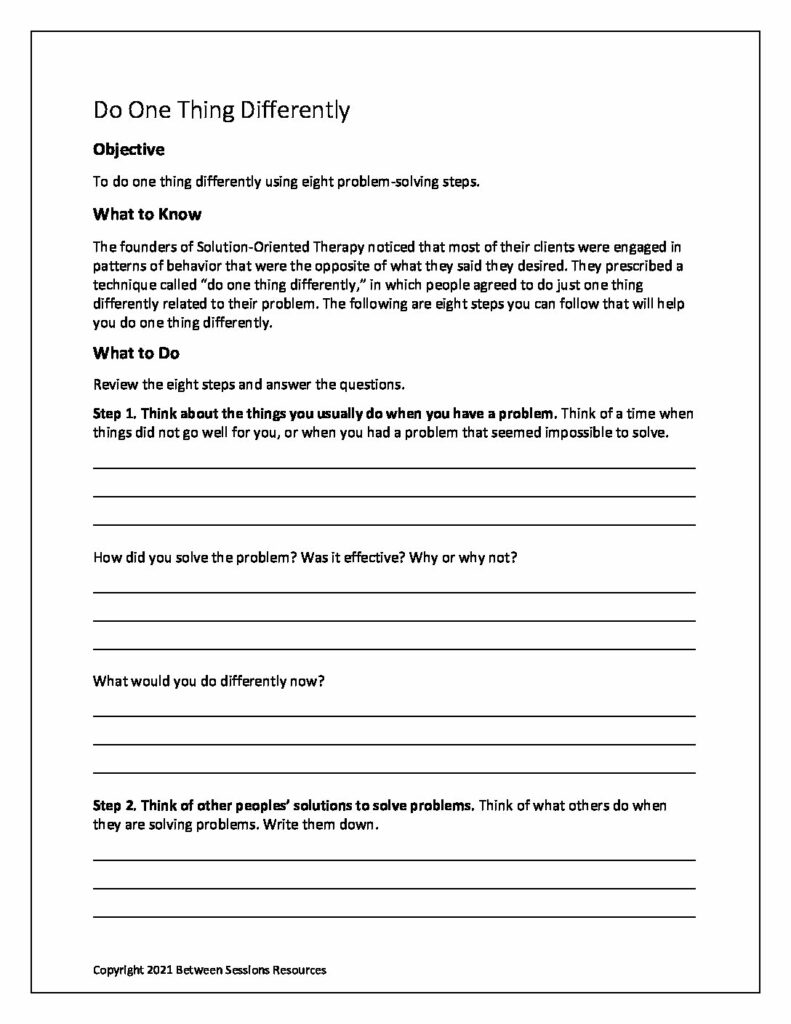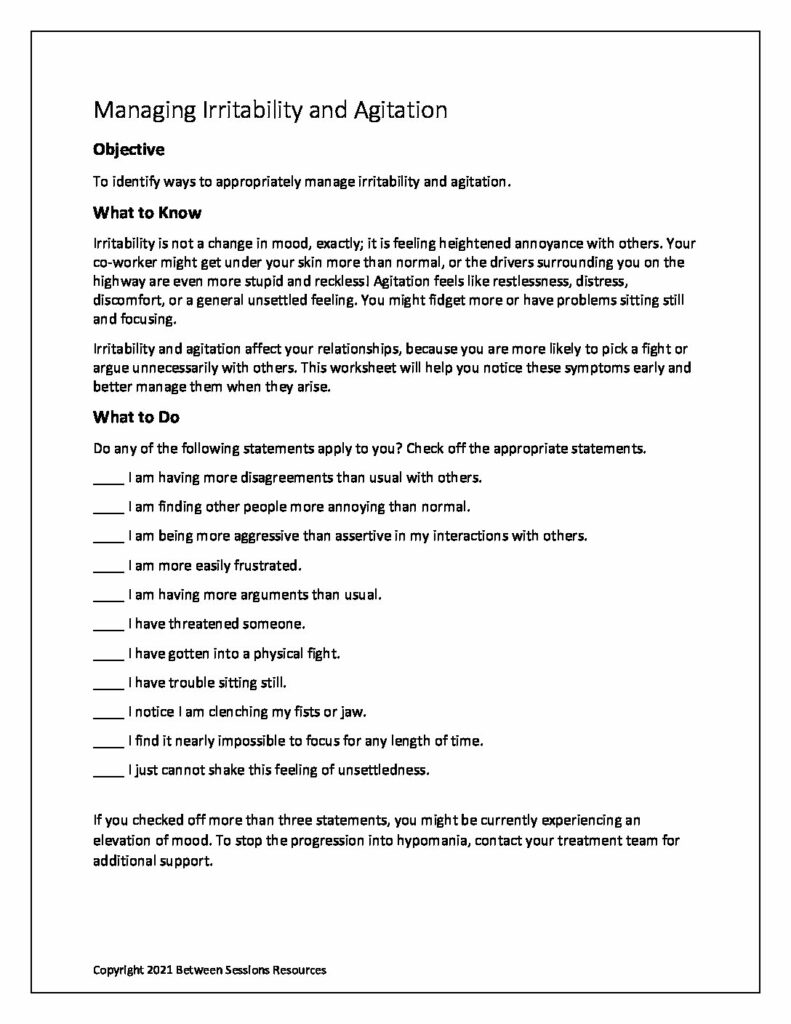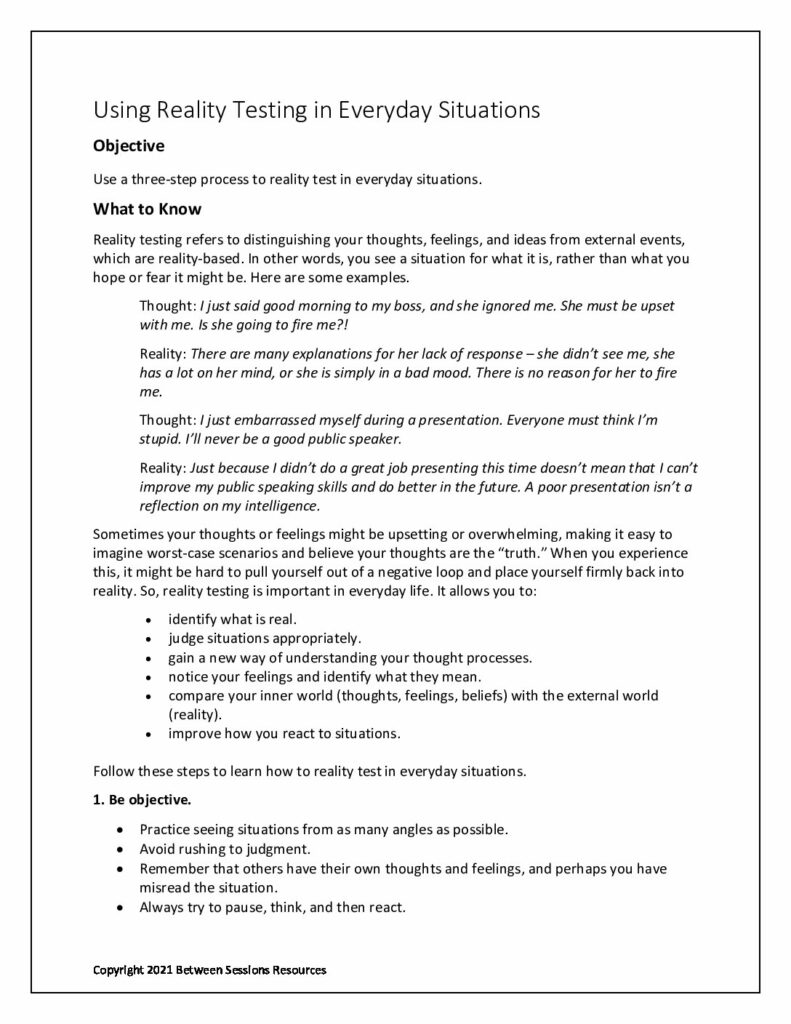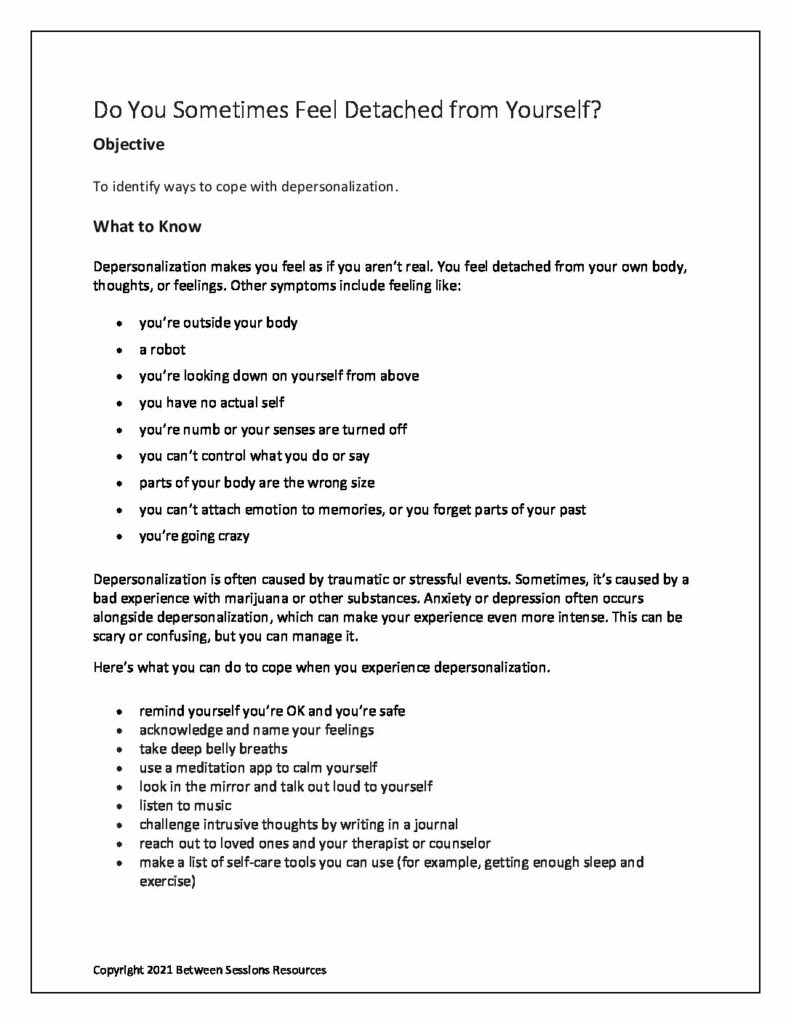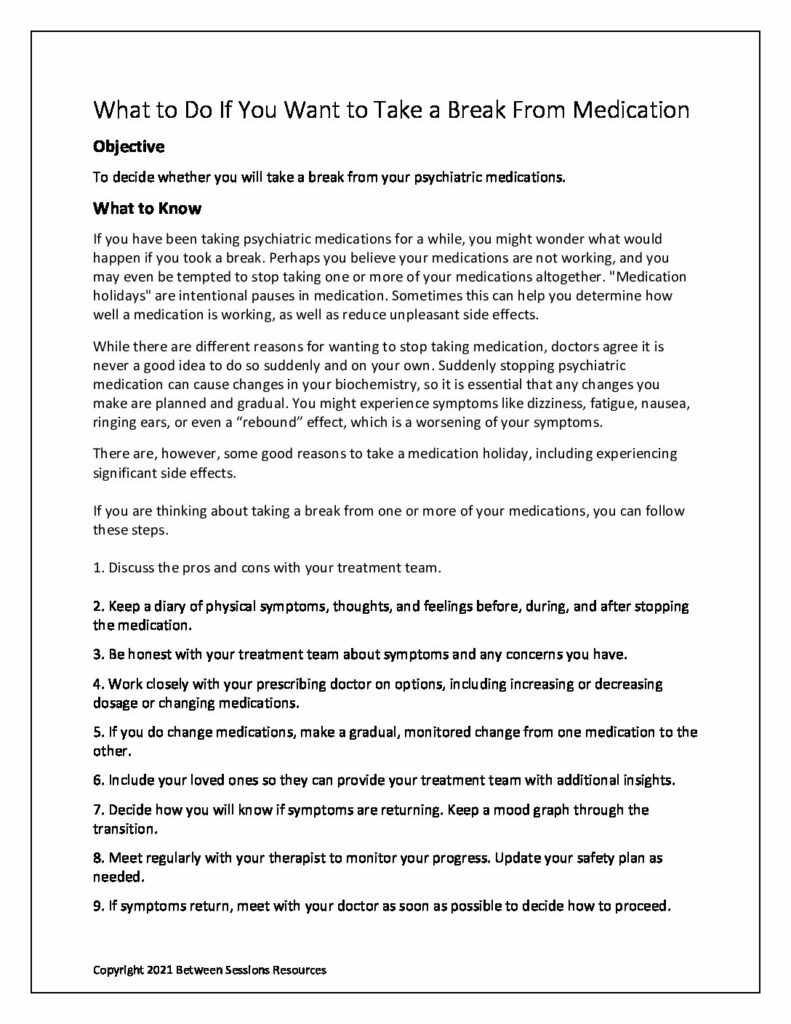The RESISTT Technique is a DBT technique to help people deal with overwhelming emotions. The acronym stands for: Reframe the Situation, Engage in a Distracting Activity, Someone Else, Intense Sensation, Shut it Out, Neutral Thoughts. The worksheet helps people understand how each technique can help them in regulating their emotions. (0122, DBT, Dialectical Behavior Therapy, emotional regulation)
This worksheet helps people understand the DBT concept of self-validation, acknowledging, allowing, and accepting your thoughts and emotions. The 4 steps of self-validation are: Observe, Acknowledge, Allow and Understand. A chart helps people practice these four important steps. (0122, DBT, self-acceptance)
This worksheet is designed to help people evaluate how self-compassionate they are and how they can treat themselves difficulty tough times. The scale measures self-compassion on a 100 point scale. (0122, self-compassion, depression, Bipolar, anxiety)
This worksheet helps people deal with Seasonal Affective Disorder (SAD) and suggests 12 ways for people to cope with this common winter problem. It includes a chart for people to keep track of what helps and what doesn’t. (1221, depression, SAD, holidays)
This worksheet is designed for people who are cut off from important family members during the holidays. It suggests specific coping techniques to make sure that the holidays don’t trigger mental health problems. (1121. depression, anxiety, holiday, family therapy, 113021)
Clients learn to re-orient their thinking. (1121, problem-solving, solutions, depression, anxiety)
This worksheet is designed to help people who are often irritated and agitated learn to notice these problems before they get out of hand and understand the social consequences of their behavior. It suggests several ways to cope with these problems and a chart to measure thoughts, behaviors, and consequences. (1121. Bipolar Disorder, relationships, workplace)
This worksheet teaches a 3-step process to help people judge situations appropriately, gain insight into their thought processes, compare their inner world to the external world, and more. It’s designed to help people be objective, seek the perspective of others, and pay attention to reactions. (1121, Borderline Personality Disorder, Bipolar Disorder, anxiety disorders, awareness)
This worksheet is designed to help people cope with depersonalization, when a person has an experience of feeling detached from his/her own body, thoughts, or feelings. The worksheet presents a variety of techniques to cope with this feeling and a chart to keep track of whether these techniques are successful. (1121, depersonalization, PTSD, Borderline Personality Disorder, psychosis, psychotic)
This worksheet is intended to help people determine if they are ready to take a break from psychiatric medication. It provides important steps to take in considering this decision as well as a chart to keep track of moods and symptoms.

